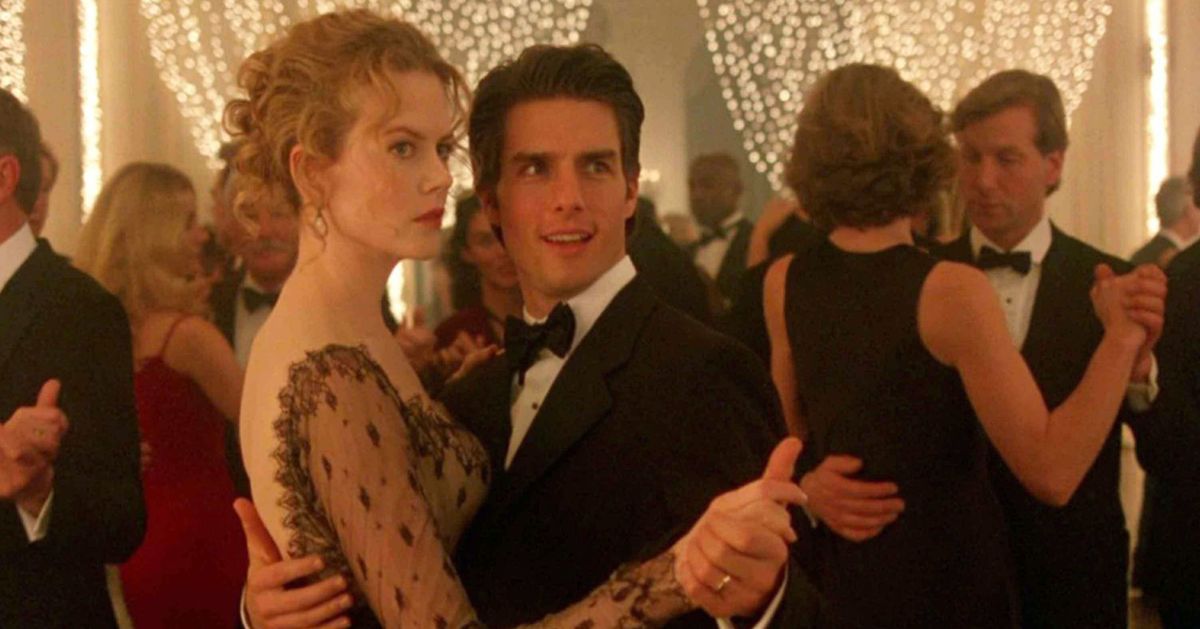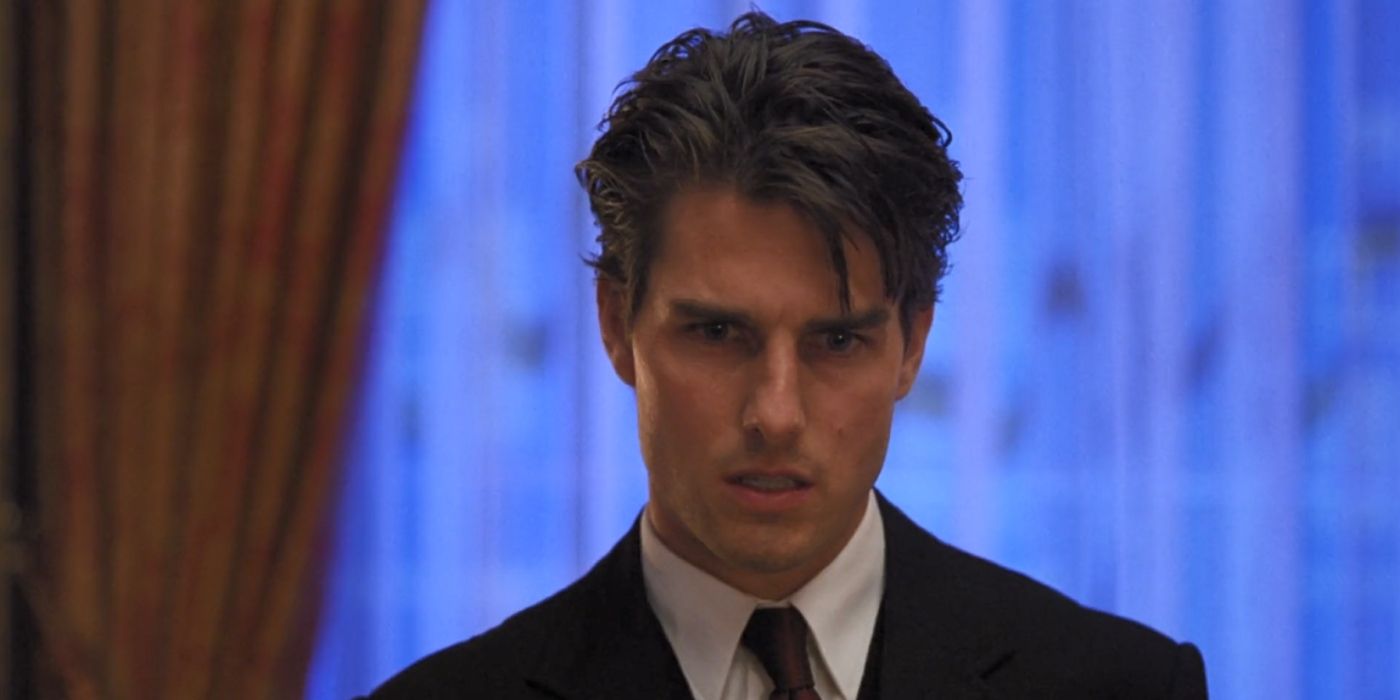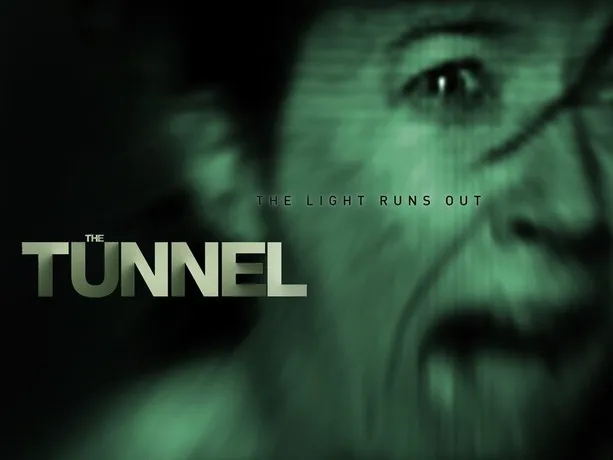Beneath the surface of desire lies a truth we dare not face.
Stanley Kubrick’s final film, Eyes Wide Shut (1999), is a haunting psychological drama that delves into the hidden corridors of desire, identity, and repression. Based loosely on Arthur Schnitzler’s novella Traumnovelle, the film follows Dr. Bill Harford (Tom Cruise) as he spirals into a surreal, erotic underworld after his wife Alice (Nicole Kidman) confesses to having imagined infidelity. What begins as jealousy turns into an existential odyssey—an exploration of temptation, secrecy, and the illusions of control in modern marriage.
Set in a wintry, dreamlike New York City, the film moves with an eerie stillness, each scene meticulously framed in Kubrick’s signature style. Bill’s journey, sparked by wounded ego and masculine insecurity, leads him through encounters with seduction, danger, and voyeuristic mystery. From a masked orgy at an elite mansion to conversations with strangers who seem to know more than they should, Eyes Wide Shut is less about what’s real than what’s hidden beneath—behind doors, behind eyes, behind social façades.

Tom Cruise delivers a restrained, almost robotic performance as Bill—purposefully cold and reactive, a man lost in his own psyche. Nicole Kidman, in contrast, infuses Alice with vulnerability and quiet power. Her monologue about fantasy serves as the emotional and thematic anchor of the film: a confrontation of sexual honesty that shatters Bill’s illusion of control.
Kubrick’s final work is often polarizing, but undeniably masterful. The pace is hypnotic, the lighting soft and dreamlike, and the symbolism layered with meaning—from masks and mirrors to red-lit rooms and ambiguous gazes. Beneath the surface-level eroticism lies a critique of class, desire, and male delusion. It asks: How well do we know the ones we love? How well do we even know ourselves?

Released just months after Kubrick’s death, Eyes Wide Shut remains a film that lingers. It's not meant to shock, but to unsettle—to challenge viewers to confront their fantasies and fears with unflinching honesty. It’s a movie that demands rewatching, not for clarity, but for the lingering questions it leaves behind.



